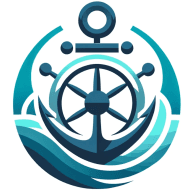6 Lessons from Implementing New Technologies in the Maritime Supply Chain
The maritime industry is undergoing a technological revolution, transforming age-old practices with cutting-edge solutions. From cloud-based systems and blockchain to AI and real-time tracking, these innovations are reshaping the entire supply chain. However, implementing new technologies in this complex sector comes with valuable lessons that can make or break the success of digital transformation efforts.
- Cloud-Based System Revolutionizes Maritime Logistics
- Fortify Maritime Cybersecurity to Protect Digital Assets
- Ensure Legacy System Compatibility in Tech Upgrades
- Real-Time Tracking Boosts Maritime Supply Chain Visibility
- Blockchain Enhances Transparency in Maritime Transactions
- AI Predictive Maintenance Optimizes Vessel Operations
Cloud-Based System Revolutionizes Maritime Logistics
One of our most successful implementations within the maritime supply chain was the adoption of a cloud-based logistics management system. This upgrade was prompted by the need for more real-time data and better communication across global teams. After researching various options, we chose a system known for its robust analytics and user-friendly interface. The transition took about six months, and it included training sessions, pilot testing, and continuous feedback loops from the team. The result was a remarkable improvement in our logistical operations, such as decreased shipping delays and enhanced inventory management.
For those looking to integrate new technology or processes in their supply chain, the key piece of advice I would offer is to focus on thorough training and change management. Engage with all stakeholders from the onset to gain their input and buy-in, which can greatly smooth the process. Also, it's beneficial to start with a pilot program to identify any issues before a full rollout. Remember, adapting to new technologies is not just about upgrades but also about adjusting to the change they bring. Emphasis on patience and flexibility during the transition period can make a significant difference in achieving successful outcomes.

Fortify Maritime Cybersecurity to Protect Digital Assets
Prioritizing cybersecurity measures in the maritime supply chain is crucial for protecting sensitive data. As new technologies are implemented, the risk of cyber attacks increases significantly. Companies must invest in robust security systems and protocols to safeguard their digital infrastructure. Regular security audits and employee training programs can help identify and address potential vulnerabilities.
By taking proactive steps to enhance cybersecurity, maritime companies can build trust with their partners and customers. It's essential to stay updated on the latest security threats and solutions in the industry. Take action now to strengthen your cybersecurity measures and protect your maritime operations.
Ensure Legacy System Compatibility in Tech Upgrades
Ensuring interoperability with existing legacy systems is a key challenge when implementing new technologies in the maritime supply chain. Many companies still rely on older systems that may not easily integrate with modern solutions. This can lead to communication gaps and inefficiencies in operations. To address this issue, companies should carefully assess their current infrastructure and choose new technologies that offer compatibility features.
Gradual implementation and thorough testing can help smooth the transition process. By prioritizing interoperability, maritime businesses can maximize the benefits of new technologies while minimizing disruptions. Start planning your integration strategy today to ensure seamless operations across all systems.
Real-Time Tracking Boosts Maritime Supply Chain Visibility
Investing in real-time tracking technology can greatly enhance visibility in the maritime supply chain. This advanced solution allows companies to monitor the location and status of vessels, cargo, and equipment at any given moment. Real-time tracking helps reduce delays, improves resource allocation, and enhances overall operational efficiency.
It also provides valuable data for analysis and decision-making processes. By implementing this technology, maritime businesses can offer better customer service and gain a competitive edge in the market. Consider exploring real-time tracking options to transform your maritime operations and boost transparency.
Blockchain Enhances Transparency in Maritime Transactions
Adopting blockchain technology in the maritime supply chain can lead to more transparent and secure transactions. This decentralized system creates an immutable record of all activities, reducing the risk of fraud and errors. Blockchain can streamline documentation processes, such as bills of lading and customs clearance, saving time and resources.
It also enables faster payments and improves trust among all parties involved in the supply chain. By embracing blockchain, maritime companies can enhance their reputation for reliability and efficiency. Take the first step towards a more secure and transparent future by investigating blockchain solutions for your maritime operations.
AI Predictive Maintenance Optimizes Vessel Operations
Implementing AI-driven predictive maintenance for vessels can significantly improve the reliability and efficiency of maritime operations. This technology uses data from sensors and historical records to forecast potential equipment failures before they occur. By addressing maintenance needs proactively, companies can reduce downtime, extend the lifespan of their assets, and optimize their maintenance budgets.
AI-driven systems can also help in planning more efficient maintenance schedules, minimizing disruptions to operations. This approach not only saves costs but also enhances safety in maritime activities. Start exploring AI-powered predictive maintenance solutions to revolutionize your vessel management and ensure smoother sailing ahead.

